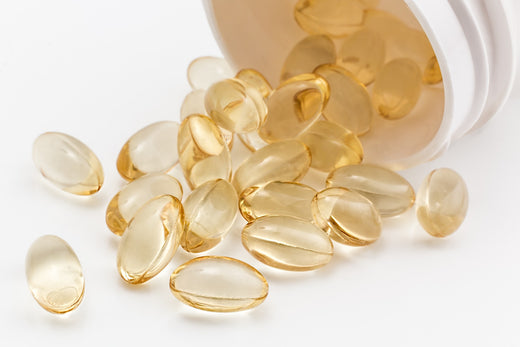
Difference Between Fat-Soluble and Water-Soluble Vitamins
Vitamins are vital to how your body functions, but not all are absorbed the same way. Some dissolve in fat and can be stored for later use, while others dissolve in water and leave your body quickly.
Knowing the difference between fat-soluble and water-soluble vitamins helps you balance your diet, avoid deficiencies, and prevent the risks of over-supplementation.
What Are Fat-Soluble Vitamins?
-
Vitamins A, D, E, K
-
How they are absorbed (with dietary fat)
-
How they’re stored in the liver/fat tissue
-
Key food sources
What Are Water-Soluble Vitamins?
-
B-complex and Vitamin C
-
Absorbed in water, not stored long-term → excreted in urine
-
Need daily replenishment
-
Key food sources
Fat-Soluble vs. Water-Soluble Vitamins: Key Differences Table
| Feature | Fat-Soluble Vitamins | Water-Soluble Vitamins |
|---|---|---|
| Examples | A, D, E, K | B-complex, C |
| Absorption | With fat | With water |
| Storage | Stored in liver/fat | Not stored |
| Risk | Toxicity with excess | Deficiency if not replenished |
Why It Matters
-
Helps avoid deficiencies
-
Prevents over-supplementation (especially fat-soluble toxicity)
-
Guides smart supplement choices
FAQs
Is vitamin A water-soluble?
No, vitamin A is a fat-soluble vitamin. It’s absorbed with dietary fat and stored in the liver and fat tissues for later use.
Which vitamins are fat-soluble vs water-soluble?
Fat-soluble vitamins: A, D, E, and K.
Water-soluble vitamins: all B-complex vitamins and vitamin C.
Why are water-soluble vitamins needed daily?
Water-soluble vitamins aren’t stored in the body. They dissolve in water and are excreted through urine, so you need to replenish them every day.
Can you take too many fat-soluble vitamins?
Yes. Since fat-soluble vitamins are stored in the body, taking excessive amounts may lead to toxicity. It’s best to stay within recommended daily intake levels.
👉 Want an easy way to cover your bases?
Explore Liquid Health’s liquid supplements collection for well-formulated options that support your nutrition without the guesswork.
Conclusion:
Both fat-soluble and water-soluble vitamins are essential, but understanding how they work in your body is key to getting the right balance. Fat-soluble vitamins like A, D, E, and K can be stored, which means too much may build up over time. Water-soluble vitamins like B-complex and C need daily replenishment, since your body doesn’t hold onto them.


Leave a comment